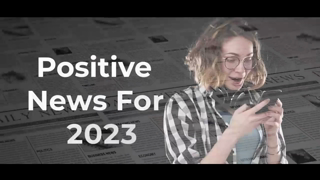Billionaire investor Warren Buffett is known for his value investing style. Many want to mirror the legend’s investing strategy and emerge a winner. Buffett’s company Berkshire Hathaway’s latest 13-F filing showed that Berkshire’s $348 billion portfolio was invested in 48 companies in the second quarter of 2023. Berkshire was a net seller of about $8 billion in stocks during the quarter.
The top 5 holdings make up about 79% of the total portfolio. These five stocks are Apple (AAPL - Free Report) , Bank of America (BAC - Free Report) , American Express (AXP - Free Report) , Coca-Cola (KO - Free Report) , and Chevron (CVX - Free Report) . Apart from these, Berkshire has significant weights in Occidental Petroleum (OXY - Free Report) and Kraft Heinz (KHC - Free Report) .
With this, Buffett’s portfolio is heavy on the below-mentioned sectors and ETFs. Let’s delve a little deeper.
Information Technology
Berkshire Hathaway has 51% of weights in Apple. Apple shares have been performing better than the industry year to date. It is benefiting from steady demand for iPhone 14 and 14 Plus as well as expanding footprint in emerging markets. Growing services subscriber base and improving customer engagement are tailwinds for the services business.
Apple’s focus on autonomous vehicles and augmented reality/virtual reality technologies presents a growth opportunity for the long haul. Apple-heavy ETF iShares U.S. Technology ETF (IYW - Free Report) has a Zacks Rank #1 (Strong Buy).
Financials
Buffett’s favorite America Express (with 7.59% exposure) has exposure to ETFMG Prime Mobile Payments Fund (IPAY - Free Report) while Bank of America (Berkshire has 8.51% weights in BAC) is heavy on the likes of iShares U.S. Financial Services ETF (IYG - Free Report) .
Digital payments have been in the front and center of consumer behavior lately. Apart from showing an increased interest in online shopping, customers are resorting to digital payments to clear their bills. Even, merchants and utility providers are increasingly advocating the same. This explains Buffett’s interest in this field.
As far as banking stocks are concerned, though flattening yield curve could spell trouble to banking stocks, big banks still have strength. Higher rates and decent loan demand will aid net interest income (NII). The opening of financial centers and improving digital capabilities will likely bolster the top line.
Energy
Berkshire invests 3.78% weights in Occidental Petroleum and 5.56% weights in Chevron. Chevron is heavy on energy ETFs like Energy Select Sector SPDR Fund (XLE - Free Report) and iShares U.S. Energy ETF (IYE - Free Report) . Occidental Petroleum has focus on First Trust Nasdaq Oil & Gas ETF FTXN.
Operating backdrop for the energy sector is also upbeat. Chances of a recession in several economies is also lower (which indicates decent demand for energy), though a soft landing is expected in many geographies.
Consumer Staples
This is a safe sector as it is non-cyclical in nature. The consumer staples sector tends to do well even amid economic growth slowdown and high inflation. Since consumers have to buy staples products even if they cut back on their discretionary spending, big manufacturers of food and beverages normally have the power to pass on the increase in costs to customers.
Buffett’s favorite Coca-Cola has substantial weight in ETFs like iShares U.S. Consumer Staples ETF (IYK). Kraft Heinz has a focus on Invesco Dynamic Food & Beverage ETF (PBJ).


